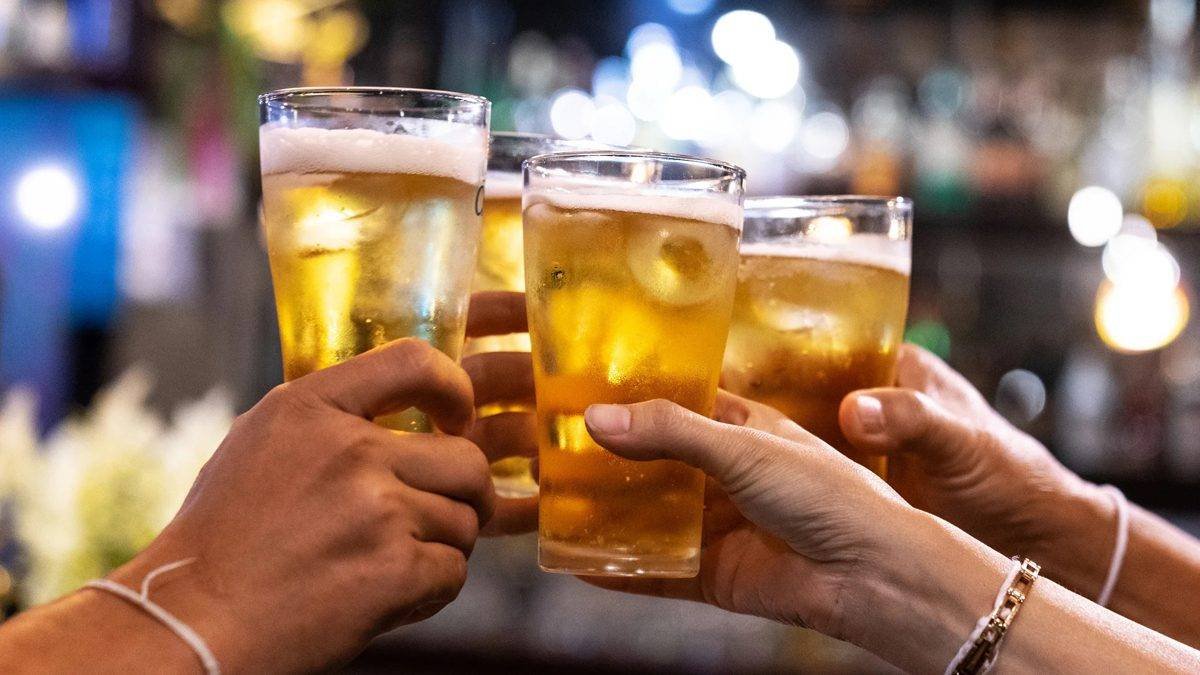Are Smarter People More Likely to Harm Themselves With Drugs & Alcohol?
Dr. Kanazawa has reissued his assertion that more intelligent people binge drink and get drunk more, according to the National Longitudinal Study of Adolescent Health (Add Health). The following data from that study relate childhood IQ to binge drinking and drunkenness:
“Very dull” Add Health respondents (with childhood IQ < 75) engage in binge drinking less than once a year. In sharp contrast, “very bright” Add Health respondents (with childhood IQ > 125) engage in binge drinking roughly once every other month.
The association between childhood intelligence and adult frequency of getting drunk is equally clear and monotonic. . . . “Very dull” Add Health respondents almost never get drunk, whereas “very bright” Add Health respondents get drunk once every other month or so.

Stanton Peele, Ph.D., J.D., lectures internationally on the meaning, treatment, and future of addiction. All Treatment awarded him the Best Academic Addiction Blog for 2012. Dr. Peele has developed the online Life Process Addiction Program (link is external). His most recent book (with Ilse Thompson) is Recover! Stop Thinking Like an Addict and Reclaim Your Life with The Life Process Program. Since the publication of Love and Addiction in 1975, Dr. Peele has been a pioneer in applying addiction beyond the area of drugs and alcohol, social-environmental causes of addiction, harm reduction, and self-cure of addiction.
Editor: Jafar Ali
So, we can ask, is getting drunk “once every other month or so” good, bad, or neutral? Is it harmless – even beneficial? Is it a social convention? An exploration of the universe? Fun for people who are better off and can spare the time and who can protect themselves while having a night out drinking? Or is this behavior pathological, a precursor to alcoholism? Specifically, are more intelligent people more likely to be alcoholics?
I can think of three possibilities:
- Although smarter people (as measured in childhood) get drunk more, they are less likely than dull people to become alcoholics. Does that mean that they are inured against alcoholism? The dominant theory here would be that being smart is a protective life asset.
- They are just as likely to become alcoholics. Which would still be somewhat counterintuitive, since despite getting drunk far more often than dull people, they are no more likely to succumb to alcoholism.
- Smart people are more likely to be alcoholics. This could follow from several theories of behavior: smart people tempt fate by drinking more, and thus they are more likely to become alcoholics. Or, smart people are inherently more likely to be alcoholics – perhaps being smart makes them more acutely aware of the world’s problems, or creates other damaging emotional states.
These different possibilities offer different perspectives on attacking alcoholism and addiction. If smart kids are significantly more likely to become alcoholics, childhood intelligence is a risk factor for alcoholism. Should parents and society, therefore, be wary of – even strive against – kids being smart? Perhaps you have heard people who say things like that they hope their kids aren’t smart for reasons like this – although the dominant striving-parent culture in America is certainly not oriented that way. Or should this not be a concern for parents of smart kids – or at least no more of a concern than it is for all parents?
What a quandary – something most people generally value leads to a behavior of which we disapprove – and possibly to a permanent disease state.
But Dr. Kanazawa goes beyond suggesting childhood intelligence is more likely to entail adult difficulties of the type coded in DSM’s categories of emotional disorders (I mean alcohol dependence, et al.). He says that smarter people are not likely to behave more healthily in regards to intoxicants if moderate drinking is such a healthy behavior.
Dr. Kanazawa notes “There are occasional medical reports and scientific studies which tout the health benefits of mild alcohol consumption, such as drinking a glass of red wine with dinner every night” (it’s not clear from this statement whether Dr. Kanazawa accepts or rejects this claim). While he continues, “it may be tempting to conclude that more intelligent individuals are more likely to engage in such mild alcohol consumption than less intelligent individuals. . . unfortunately for intelligent individuals, this is not the case.”
This follows, for Dr. Kanazawa, since “more intelligent children are more likely to grow up to engage in binge drinking and getting drunk.” In Dr. Kanasawa’s view, occasional drunkenness (once every other month or so) is incompatible with regular moderate drinking.
Which would mean that, as a rule of thumb, intelligent people overall behave less healthily with alcohol and drugs. Hmm, than doesn’t seem commonsensical, or does it?

